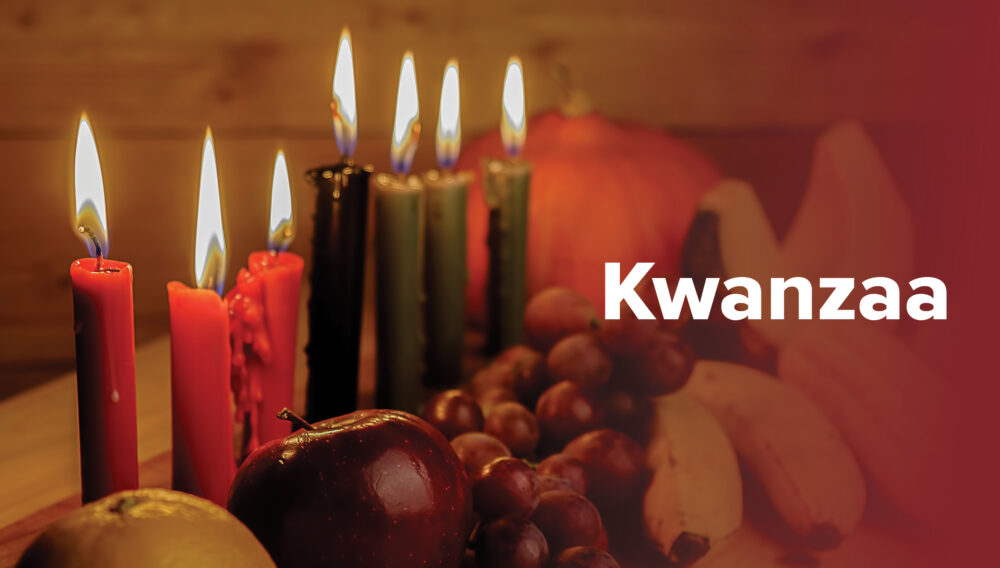Kwanzaa

History of Kwanzaa
In 1966, Dr. Maulana Karenga professor and chairman of Black Studies at California State University, Long Beach created Kwanzaa. In an effort to bring African Americans together as a community, he combined aspects of several different harvest celebrations, such as those of the Ashanti and those of the Zulu to form the basis of the week-long holiday. Kwanzaa is derived from the phrase “matunda ya kwanza” which is Swahili for “first fruits.” Each family celebrates Kwanzaa in their own way. The holiday traditionally lasts seven days and on each of the seven nights, the family gathers, and a child lights one of the candles on the candleholder, also known as kinara, followed by a discussion of one of the seven principles.
The seven principles called the Nguzo Saba in Swahili are values of African culture which contribute to building and reinforcing community among African Americans. In addition to the candle lighting ceremony, celebrations often include songs and dances, African drums, storytelling, poetry reading, and a large traditional meal.
When and How is Kwanzaa Celebrated
Even though Kwanzaa began as an alternative to Christmas, many families celebrate both holidays. According to Dr. Karenga, Kwanzaa is a cultural holiday with spiritual significance, not religious. Thus, African Americans of all faiths can and do celebrate Kwanzaa. In 2022, Kwanzaa begins on Monday, December 26, and ends on Sunday January 1,2023.
Resources to learn more about Kwanzaa
National Museum of African American History and Culture
Official Kwanzaa Website
African American Cultural Center


